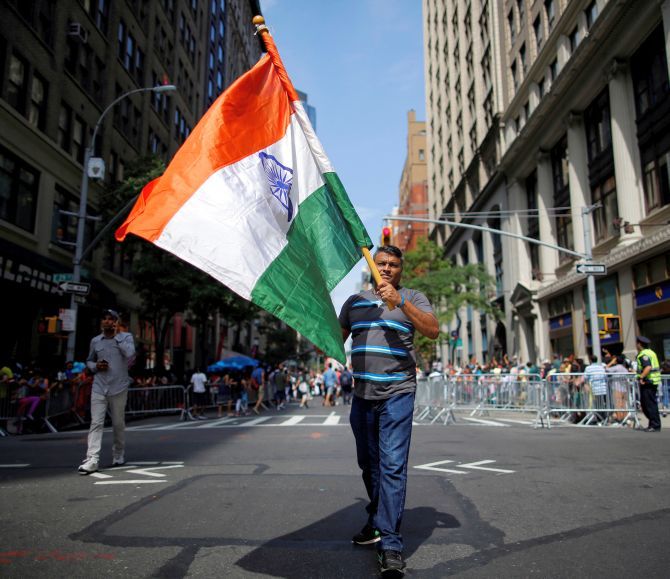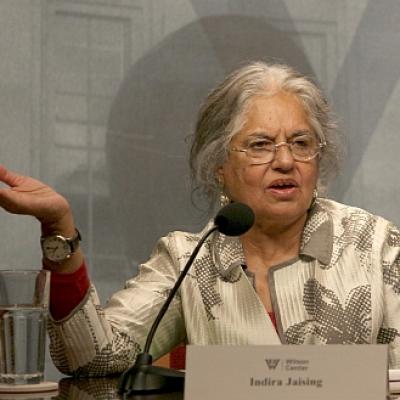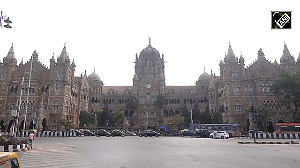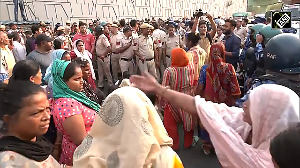'Unfortunately, the judges chose not to address the issue of whether Hindutva is an appeal to religion.'
'From the moment the judgment is delivered, it is the law of the land.'

Senior Supreme Court lawyer Indira Jaising. image, below, discusses the Supreme Court judgment banning the use of religion, caste, creed or language to seek votes during elections with Rediff.com's Prasanna D Zore.
How do you see the Supreme Court ruling banning the use of religion, caste, language and creed for seeking votes and deeming it illegal?
For the first time, the Supreme Court has created a wall of separation between religion and politics; the Supreme Court has interpreted Section 123 of the Representation of People's Act to mean that NO person can appeal to a voter in the name of religion of the candidate or the religion of their opponent for the purpose of gaining votes in an election.
The judgment reinforces the secular nature of the Constitution.
 How will this ruling impact India's political parties?
How will this ruling impact India's political parties?
I think it will have a deep impact on the politics of the country; all parties will have to be cautious in the manner in which they draft their manifestos and do election speeches.
For example, I do not think any candidate will be allowed to ask for votes on the ground that he or his party will build a Ram temple if elected; let us wait and see what happens.
The judges who voted in favour of the ruling said election is a secular exercise and political parties cannot seek votes in the name of religion.
Will it have any bearing on the elections that are due to five state assemblies this year?
Undoubtedly it will; from the moment the judgment is delivered it is the law of the land.
The dissenting judges though said the decision amounted to 'judicial redrafting of the law.' How do you interpret this dissent and what could have been the nature of the ruling had one more judge dissented against it?
All judgments are decided by what the majority says and that becomes the law of the land; the question of how to interpret a law, purposively or literally, is a longstanding issue and in my opinion there is a definite value judgement in taking that decision; it is not just a matter of language, it is about the values that inform that language.
The majority chose to strengthen the values of secularism.
BJP MP Subramanian Swamy has said the BJP will make use of Hindutva and not Hinduism during the UP elections.
Can the BJP do so? Is there a loophole in this ruling, then?
Unfortunately, the judges chose not to address the issue of whether Hindutva is an appeal to religion or to a way of life.
The judgment of Justice (J S) Verma on this issue has been much criticised. As some authors point out, all religions prescribe a way of life, they don't therefore cease to be religion.
This is a particularity. So is the case of Hindutva which has come to be associated with the idea of a theocratic State.
Yes, it is an issue waiting to be answered by the court since Justice Verma's ruling is under challenge.
What action can be taken against a person, political party or candidate if s/he is found violating this ruling?
What kind of punishment can such a candidate face if it is proved that s/he has used religion, caste, creed or language to exploit sentiments of the people and win elections?
Disqualification on the ground of having committed a 'corrupt practice'.
IMAGE: A scene during the India Day parade in New York City. Photograph: Eduardo Munoz/Reuters







 © 2025
© 2025